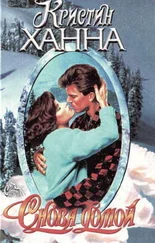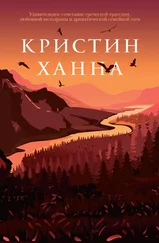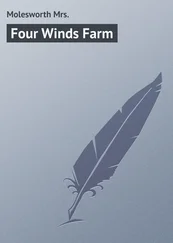She had counted on a lifetime to teach her children what they needed to know, but she didn’t have that gift of grace and time. Still, she had given them what mattered: they were loved and they knew it. Everything else was decoration.
Love remains.
“Ant,” she said, opening her arms.
He climbed like a monkey from Jack’s arms to hers. His weight pressed down on her, caused an agonizing pain. She kissed his wet cheek.
“Don’t die, Mommy.”
That hurt worse than her gunshot. “I’ll … watch over you … all your life. Like … the Shadow. At night … while you sleep.”
“How will I know?”
“You’ll … remember me.”
He cried. “I don’t want you to leave.”
“I know, baby.” She wiped his tears, felt the start of her own.
Jack saw her pain and pulled Ant into his arms. It broke her heart to see him holding her son. Here was a flash … a glimpse of the future that was slowly being lost. The family they could have become.
She stared up at Jack. “God, what a life we could have had.”
He leaned closer, still holding Ant, and kissed her on the lips, stayed there long enough that she tasted his tears.
She lifted a hand, pressed her palm to his cheek so he could feel her touch one last time. “Take them home for me,” she whispered against his lips.
He nodded. “Elsa … God, I love you…”
Loreda slipped in beside Jack, who stepped aside, soothed Ant, stroked his back.
“Hey, Mom,” Loreda said in a thready voice.
Elsa stared up at her brash, beautiful, impetuous daughter. “I wanted to watch you take on the world, baby girl.”
“I can’t do it without you.”
“You can … and you will.”
“It’s not fair,” Loreda said. “No one will ever love me like you do.”
Elsa had trouble breathing. It felt as if she were drowning from the inside out. She reached up slowly, every movement hurting, and untied the necklace at her throat. She took the velvet pouch in shaking hands and placed it in her daughter’s palm. “Keep … believing in … us.” Elsa paused to catch her breath. Every second hurt more than the last.
Loreda took the pouch in her hand, held it as her tears fell. “What do I do without you?”
Elsa tried to smile but couldn’t. She was too tired. Too weak. “You live, Loreda,” she whispered. “And know … every single second … how much I loved you.” Find your voice and use it … take chances … never give up.
Elsa couldn’t keep her eyes open anymore. There was so much more to say, a lifetime’s worth of love and advice to bestow on her children, but there was no more time …
Be brave, she might have said, or maybe she only thought it.
THIRTY-SIX
“She wants us to go home,” Loreda said. The unexpected word— home —gave her a bit of steadiness; something to hold on to. Grandma and Grandpa. She needed them now.
“That’s what she said.”
Jack held Ant, who had cried himself to sleep.
“Good. I won’t bury her here,” Loreda said. “And Ant and I can’t stay. Even if they are still having dust storms in Texas. We can’t stay here. I won’t stay here.”
“I’ll drive you back, of course, but…”
“Money,” Loreda said dully. Everything came down to that.
“I’ll talk to the Workers Alliance. Maybe—”
“No,” Loreda said sharply, surprised by the suddenness of her anger, the burning heat of it.
Enough was enough.
Goddamned enough.
Desperate times called for desperate measures. She knew what Mom had done for Jean at a moment like this.
“I know where we can get what we need,” she said. “Can I take your truck?”
“It doesn’t sound like a good idea…”
“It isn’t. Can I have your keys?”
“They’re in the truck. Don’t make me regret this.”
“I’ll be back as soon as I can.”
Loreda rushed out of the hospital and drove Jack’s truck north. Look, Mom, a driving emergency, she thought, starting to cry again.
In town, she passed vigilantes driving up and down the streets with loudspeakers, telling people to get back to work or be arrested for vagrancy, promising hard labor.
She could do this.
She could.
And if she died or went to hell or went to jail, well, okay. She was, by God, going to get her mother home so she could be buried on the land she loved, and not here, in this place that had broken and betrayed them.
She pulled up in front of the El Centro Hotel and ran up to Mom’s room. There, she grabbed the shotgun, stuffed some clothes in a laundry bag, and went back down to Jack’s truck and drove north.
Not far from the Welty camp, she parked behind an Old Gold cigarettes billboard. She grabbed the shotgun and laundry bag and darted into the camp and past the empty guardhouse.
The camp was quiet; eviction notices fluttered on every cabin door. She snagged some boys’ clothes from a laundry line—a pair of wool pants, a black sweater—and found a floppy black hat in a mud puddle. She pulled the boys’ oversized clothes on over her faded dress and tucked her hair up under the hat, then smeared mud on her cheeks.
Hopefully she looked like a boy going rabbit hunting.
A heavy pall of defeat lay over the place. The vigilantes were gone, but the point had been made. Power reestablished. Loreda had no doubt that even though Mom had given her life for this strike, it would be broken. If not today, then tomorrow or the next day. Starving, desperate people could only fight for so long.
She passed a few women and children standing in lines—for the showers, for the bathrooms, for the laundry—and made eye contact with none. She didn’t recognize many of them anyway; the camp was already filling with new folks, ready to pick for any wage to put food on the table.
The camp store sat off by itself, lights on inside, ready to trap more unwary newcomers into debt.
Loreda opened the door cautiously, peered in.
No customers.
She breathed a sigh of relief.
She let the door bang shut behind her and did her best to swagger forward in her boy’s disguise. She kept her eyes cast downward.
There was a new man at the register, one she had never seen before.
A lucky break.
Loreda raised the shotgun and aimed it at him.
The man’s eyes widened. “What’re you doin’, son?”
“I’m robbing you. Give me the money in the register.”
“We’re a credit business.”
“Don’t insult me. I know you give cash for credit.” She cocked the gun. “You ready to die for Welty’s money?”
The man wrenched open the cash register and pulled out all the bills, shoved them toward Loreda on the counter.
“Coins, too.”
He jangled up the coins and stuffed all the money in a burlap sack. “There. That’s everything we got. But Welty will find you and—”
She grabbed the bag. “Get down in the corner. If I see you run out after me, I’ll shoot you dead. Believe me, I am mad enough to do it.”
She backed out of the store, kept the gun aimed at his hunched back.
Once outside, she threw the gun in the bushes and ran for the trees at the back of the camp, pulling off the boy’s sweater as she went. She used the sweater to scrub the dirt off her face; she took off the hat and stepped out of the pants, then tossed it all in a trash can and shoved the burlap bag full of money into her laundry sack.
Now she was just a skinny girl in a faded dress.
She was halfway to the guardhouse when she heard a whistle blow.
Men with guns ran into camp, stopped at the store.
Loreda went to the laundry and got in line.
Someone hollered, “Got his gun!”
“Fan out, look everywhere! Welty wants this boy found.”
Читать дальше












